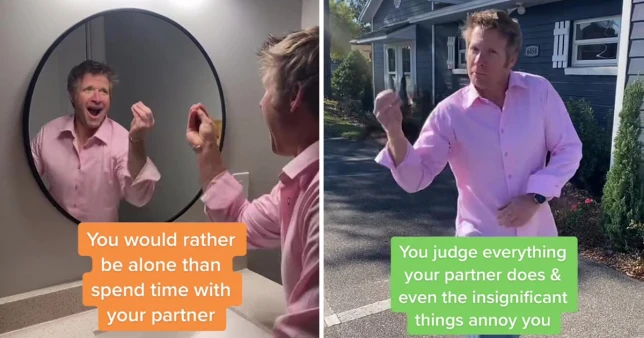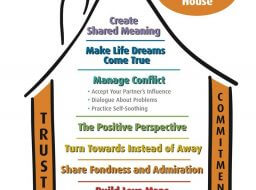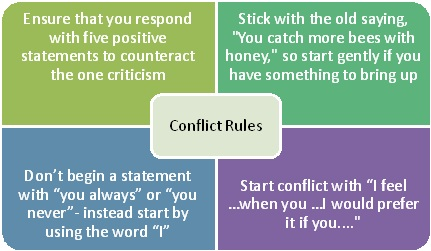- HOME
- PSYCH SERVICES
- BUSINESS & PERFORMANCE PSYCHOLOGY
- CLINICAL, COUPLES, & FAMILIES
- ADHD Treatment & Evaluation Services
- Anger Management
- Anxiety Treatment & Evaluation Services
- Borderline Personality Treatment Services
- Cognitive Behavioral Therapy (CBT) Self-Help
- Couples Counseling and Marital Therapy
- Consent for Psychological Services for Minors Post-Divorce
- Depression Treatment Services
- Infidelity Recovery
- Jacksonville Counseling and Psychology
- Military Psychology & Tricare
- Narcissistic Personality Treatment Services
- Online Counseling
- Psychoeducational Testing
- Psychological Testing and Assessment
- Psychotherapy & Counseling
- FORENSIC PSYCHOLOGY & EXPERT TESTIMONY
- LIFE COACHING & EXECUTIVE COACHING
- PSYCHOLOGICAL PUBLIC DISABILITY QUESTIONNAIRES (DBQ)
- ONLINE COURSES
- Our Partnership Begins When You Purchase an Online Course
- Get to Know Dr. D’Arienzo, Relationship Expert
- Florida Premarital Preparation Online Course
- Georgia Premarital Education Online Course
- TwogetherinTexas Premarital Online Course
- Tennessee Premarital Preparation Online Course
- Minnesota Premarital Education Course Online
- Oklahoma Premarital Counseling Online Course
- South Carolina Premarital Preparation Course
- West Virginia Premarital Education Course
- Online Marriage and Relationship Tune Up Course
- Florida DCF Certified Parent Education and Family Stabilization Online Course
- Georgia Qualified Parent Education and Family Stabilization Online Course
- Texas Qualified Parent Education and Family Stabilization Online Course
- High Conflict Co-Parenting Online Certificate Course (8 Hours)
- Online Anger Management Four Hour Course (Level 1)
- Online Anger Management Eight Hour Course (Level 2)
- Sexual Harassment Online Training
- MMPI/GUARD/LEO
- CPI Police and Public Safety Assessment
- G License Psychological Testing
- Online Psychological Testing for Armed Security Guards and Personal Protection Officers
- MMPI Texas Level III CSO and IV PPO Psychological (ONLINE)
- Requirement for Texas Security License Applicants: MMPI Evaluation
- Level 3 Security Guard New Mexico Online MMPI Psychological Evaluation
- TEAM
- SOCIAL MEDIA/BOOKS
D'Arienzo Psychology Blog
Executive Protection and Security Personnel Psychological Testing

Posted by: Dr. Justin D'Arienzo, Psy.D., ABPP
Dr. D’Arienzo, is a former Active Duty Navy Psychologist licensed in Texas, New Mexico, and Florida and has reciprocity in 40 other states to include Arizona and Pennsylvania. He has conducted nearly a thousand security psychological evaluations as a civilian and in the military. He has developed a seamless process providing virtual and in-person evaluations and psychological testing. Please do not trust your gun carrying related evaluations to just anyone. This is serious business! Cheaper means not a psychologist and cutting corners. Psychologists are the only professionals competently trained in psychological testing. Make sure you are using a psychologist if you are not using us.
We service individuals and companies seeking their credentialing needing psychological testing and psychological evaluations. Dr. D’Arienzo is a Board Certified Clinical Psychologist. If he is unavailable for the evaluation in question, he has four other licensed psychologists to assist in the process. We can get you scheduled within the week and once the testing has been completed, there is a 24 hour turnaround to get your results. We work with companies interested in a building a strong relationship with us. We want to work with you in finding the right people. Please contact us at 904-379-8094 or [email protected]. Find out more information about us at www.drdarienzo.com
Navigating Road Rage

Posted by: Dr. Justin D'Arienzo, Psy.D., ABPP
This article discusses the increasingly prevalent issue of road rage and suggests a series of effective strategies to manage it, backed by scientific research. First, self-awareness is emphasized as critical in recognizing triggers and symptoms of road rage. Techniques such as deep breathing and stress management practices can mitigate feelings of anger and frustration. The article underlines the importance of communication on the road, including the use of respectful gestures and appropriate signaling to create a considerate driving environment. It advises against retaliation when faced with aggressive drivers and recommends distancing oneself and reporting threatening behavior. The piece mentions the role of technology, highlighting apps like Drivemode and LifeSaver that help manage road rage. It concludes by stressing the importance of empathy, recognizing that understanding others’ experiences can defuse anger and foster patience. These approaches collectively can significantly decrease road rage, contributing to safer roads.
Fox News and Former Navy Psychologist

Posted by: Dr. Justin D'Arienzo, Psy.D., ABPP
I had the priviledge last week begining June 21, 2023 of speaking to several national and international news outlets about the psychology of submariners, the potential psychological state of those in the Titan Submersible and the search and rescuers. Once it was determined that the vessel imploded, I then spoke of how the missing submersible captivated the world. Based on my expertise in psychology and history of working with Navy submariners and search and rescuers while I served as a Navy Psychologist, I was able to offer unique insights about this event. Check out the links to see the interviews.
LoveFest 30 Day Relationship Challenge

Posted by: Dr. Justin D'Arienzo, Psy.D., ABPP
Summer LoveFest 30-Day Relationship Challenge As seen on TikTok @dr.justindarienzo I can help you improve your relationship by taking our Summer Lovefest 30-day Relationship Challenge. It’s free, and all you have to do is be bold and participate every day. I will give you one challenge based on the psychological science to do as a couple for the next 30 days that will absolutely improve your relationship if you stick with the program. There will be a new activity that should be maintained every day as best you can. If you reading this now, it starts today for you. Be bold and comment every day on the corresponding TikTok video once you’ve successfully completed the challenge. If you are feeling extra bold post a picture of you and your partner completing the challenge and tag me for a chance to be reshared on my page. My wife and I are going to be sharing [email protected] Be bold & send this to your partner!!! #fyp #fypシ #psychologist #psychologistoftiktok #psychologistsoftiktok #relationships #relationshipadvice #dating #datingadvice #marriage #marriageadvice #couples #couplestherapy #tipsandtricks #funfacts #evolutionarypsychology #improveyourrelationship #lovefest #30days #bold #confidence ♬ Forever – Labrinth
Cognitive Behavioral Therapy (CBT) Explained

Posted by: Dr. Justin D'Arienzo, Psy.D., ABPP
Cognitive behavioral therapy (CBT) is a type of psychotherapy that focuses on changing the way people think and behave. It is one of the most widely used forms of psychotherapy in the world, and it has been shown to be effective in treating a wide range of mental health conditions, including depression, anxiety, and eating disorders. What is CBT? CBT is based on the idea that our thoughts, feelings, and behaviors are all interconnected. In other words, the way we think about things can have a big impact on how we feel and how we behave. CBT helps people to identify negative or unhelpful thinking patterns, and to learn how to challenge these patterns and replace them with more helpful ones. How does CBT work? CBT is typically conducted over a series of weekly or biweekly sessions. In each session, the therapist will work with the client to identify specific problems that they are facing, and to develop a plan for addressing these problems. The plan may include a variety of techniques, such as: Cognitive restructuring: This involves identifying and challenging negative or unhelpful thoughts. Behavioral experiments: This involves testing out new behaviors in order to see if they lead to more positive outcomes. Exposure therapy: This involves gradually exposing people to situations that they find anxiety-provoking, in order to help them overcome their fear. What are the benefits of CBT?
CBT has been shown to be effective in treating a wide range of mental health conditions, including: Depression, Anxiety disorders, Eating disorders, Post-traumatic stress disorder (PTSD), Substance abuse, Chronic pain, and Insomnia
Florida Psychologists Gain PsyPACT

Posted by: Dr. Justin D'Arienzo, Psy.D., ABPP
Dr. D’Arienzo was intimately involved with PsyPACT legislation this year (2023). In early spring, he was fortunate to meet with Florida Senator Traci Davis, and Florida House Representatives Clay Yarborough, Wyman Duggan, and Sam Garrison to discuss the importance of passing PsyPACT and they did! In fact, it had unanimous support in the Senate and House!!!
Dr. D’Arienzo is already an approved PsyPACT Psychologist through Texas; however, he will be switching his PsyPACT state to Florida on July 1, 2023. PsyPACT: How FPA got it Across the Finish Line An effort that began in 2018 is now reality. Many of you may be wondering “what took so long?” To help with that understanding, I want to share with you what the process entails: Finding the right House and Senate sponsors- these are legislators who have the desire, ability, and power to get things done- and hopefully aren’t term limited before you get your legislation passed.
Gaining the support of House and Senate leadership- this includes six committee chairs and the leaders of the House and Senate (which all change every 2 years) and the Governor. Assuring the legislation: (1) is drafted identically in the House and Senate: (2) follows the model language required by PsyPACT; and (3) has language that remains consistent in the House and Senate versions. Educating legislators and the Governor’s office on why PsyPACT is important for patient care continuity and how Florida standards are maintained Shepherding the bill through three House Committees and three Senate committees in a 2-month session. This requires constant contact with the Chairs of each of these committees.
The Gottman Approach to Couples Therapy

Posted by: Dr. Justin D'Arienzo, Psy.D., ABPP
The Gottman Approach is a research-based approach to couples therapy that has been shown to be effective in helping couples improve their communication, resolve conflict, and strengthen their relationships. What is the Gottman Approach? The Gottman Approach is based on the idea that all relationships go through ups and downs, and that it is possible to learn how to weather the storms and come out stronger on the other side. The approach focuses on helping couples to: Understand their own and their partner’s emotional needs. Communicate effectively with each other. Resolve conflict in a healthy way. Build trust and intimacy. Maintain a positive outlook on their relationship.
How does the Gottman Approach work? The Gottman Approach is typically conducted over a series of weekly or biweekly sessions. In each session, the therapist or psychologist will work with the couple to: Identify their strengths and weaknesses as a couple. Learn how to communicate effectively with each other. Resolve conflict in a healthy way. Build trust and intimacy. Maintain a positive outlook on their relationship.
Best Practices in Psychological Testing for Armed Security Personnel

Posted by: Dr. Justin D'Arienzo, Psy.D., ABPP
Insights from a Leader in Security Psychological Testing
Dr. Justin D’Arienzo presented best practices in psychological testing for armed security at Blue Cross/Blue Shield and GuideWell’s Corporate Security Leadership Conference. Alongside Rob O’Neill, Dr. D’Arienzo emphasized the importance of evidence-based evaluations for selecting top security personnel, sharing experiences with high-stakes clients like the Florida Highway Patrol and VA Police Officers.
5 Tips for Effective Communication

Posted by: Dr. Justin D'Arienzo, Psy.D., ABPP
Communication is one of the most important skills in any field. Whether you’re a student, a professional, or just trying to get through your day, being able to communicate effectively can make a big difference. In this post, we’ll discuss five tips for effective communication. By following these tips, you can improve your communication skills and make a positive impact on your relationships, your career, and your life. Tip #1: Be clear and concise. When you’re communicating with someone, it’s important to be clear and concise. This means using language that is easy to understand and avoiding jargon or technical terms that the other person may not be familiar with. It also means getting to the point quickly and avoiding rambling.
Tip #2: Use active listening skills. Active listening is just as important as clear communication. When you’re listening to someone, it’s important to make eye contact, nod your head, and ask clarifying questions. This shows the other person that you’re paying attention and that you’re interested in what they have to say. Tip #3: Be respectful of others. Even if you disagree with someone, it’s important to be respectful of their opinion. This means avoiding personal attacks and name-calling. It also means listening to their point of view and trying to understand where they’re coming from. Find out more tips….
How to Spot a Narcissist

Posted by: Dr. Justin D'Arienzo, Psy.D., ABPP
How to spot a narcissist? Dr. D’Arienzo, Clinical Psychologist here. I am going to share five signs that indicated you might be dealing with a narcissist. Receiving criticism: Their fragile self-esteem can’t even handle constructive criticism. Feedback seems like a direct attack. Losing Control: When they lose control of situations and people around them, they feel powerless because it contradicts their grandiose image of themselves. Not being admired: They thrive on admiration and attention and when they are ignored and don’t get what they think they deserve they pout, and get frustrated and angry. Being exposed: They create a false persona to maintain their inflated self-image but when someone exposes their true self, vulnerabilities or manipulations, they go on the attack. Losing a competition: They think they are superior to others and when someone beats them, they feel inferior, so they react with rage, make excuses, and “file away” a serious resentment. Losing is personal to a narcissist. Obviously, we all have some of these traits, but if you’re narcissist, you would have most of these and to the extreme. If that’s you or your in a relationship with one, get professional help.




